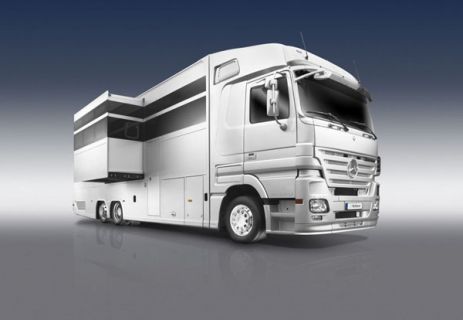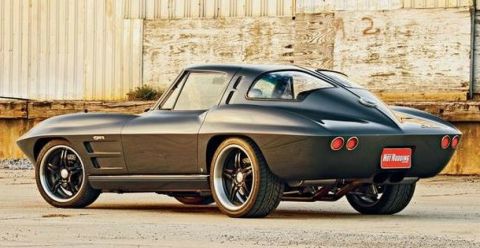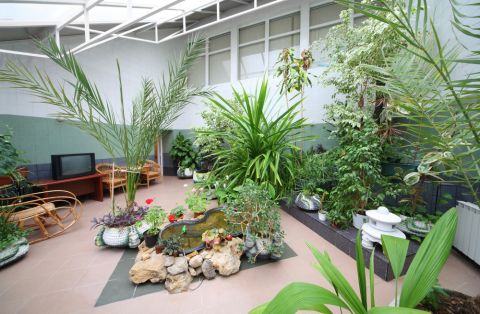Exploring the Evolution and Allure of Modern Mobile Living
2024-03-21 15:18:54
In recent years, mobile homes have experienced a renaissance, shedding their outdated stereotypes to emerge as stylish, affordable, and sustainable housing options. Once associated primarily with retirees and low-income individuals, mobile homes now appeal to a diverse range of demographics seeking flexibility, affordability, and a simpler way of life. From sleek, modern designs to eco-friendly innovations, mobile homes offer a compelling alternative to traditional housing that is reshaping the way we think about homeownership.

A Brief History of Mobile Homes:
The concept of mobile homes traces back to the early 20th century, with the advent of travel trailers and recreational vehicles (RVs) designed for temporary living and leisure travel. These early mobile dwellings were basic in design and function, primarily used for short-term vacations or as temporary accommodations.
It wasnt until after World War II that mobile homes began to gain popularity as a more permanent housing solution. With the housing shortage and suburban sprawl of the post-war era, mobile homes emerged as an affordable and practical option for families seeking homeownership without the high costs and long-term commitments associated with traditional houses.
Throughout the decades, mobile home designs evolved from simple trailers to larger, more spacious models with modern amenities such as kitchens, bathrooms, and heating systems. However, stigma surrounding mobile homes persisted, fueled by misconceptions about quality, durability, and socioeconomic status.
The Modern Mobile Home Renaissance:
In recent years, attitudes towards mobile homes have shifted dramatically as innovative manufacturers and designers have transformed the industry with cutting-edge technology, sustainable materials, and contemporary aesthetics. Todays mobile homes boast high-quality construction, energy-efficient features, and customizable floor plans that rival traditional housing options in both style and functionality.
One of the key drivers of the modern mobile home renaissance is the growing demand for affordable housing solutions in the face of skyrocketing real estate prices and stagnant wages. With housing affordability reaching crisis levels in many parts of the world, mobile homes offer a viable alternative for individuals and families seeking homeownership without breaking the bank.
Benefits of Mobile Home Living:
1. Affordability: Mobile homes are significantly more affordable than traditional houses, making homeownership accessible to a wider range of people, including first-time buyers, young families, and retirees on fixed incomes.
2. Flexibility: Mobile homes offer flexibility and mobility that traditional houses cannot match. Whether you are a digital nomad seeking adventure or a retiree looking to downsize, mobile homes allow you to pick up and move with ease, providing a sense of freedom and spontaneity.
3. Sustainability: Many modern mobile homes are designed with sustainability in mind, incorporating energy-efficient appliances, renewable materials, and eco-friendly construction techniques. By minimizing environmental impact, mobile homes offer a greener alternative to traditional housing options.
4. Community: Mobile home parks and communities provide a sense of camaraderie and belonging that can be lacking in traditional neighborhoods. Residents often form close-knit communities, organizing social events, shared amenities, and support networks.
Trends in Mobile Home Design:
1. Modern Aesthetics: Contemporary mobile homes feature sleek, minimalist designs with clean lines, open floor plans, and high-end finishes. From minimalist Scandinavian-inspired interiors to industrial loft-style exteriors, modern mobile homes exude sophistication and style.
2. Tiny Homes: The tiny house movement has influenced mobile home design, with an emphasis on compact, efficient living spaces that maximize every square inch. Tiny mobile homes offer all the amenities of a traditional house in a smaller footprint, catering to minimalist lifestyles and environmental consciousness.
3. Off-Grid Living: With advancements in solar power, water recycling, and off-grid technology, many mobile homes are now capable of operating independently of traditional utilities. Off-grid mobile homes allow residents to live sustainably and self-sufficiently, even in remote or rural locations.
4. Customization: Manufacturers offer a wide range of customization options, allowing buyers to personalize their mobile homes to suit their tastes, preferences, and lifestyle needs. From choosing finishes and fixtures to modifying floor plans and layouts, customization options abound in the world of modern mobile homes.
Mobile homes have come a long way since their humble beginnings, evolving into stylish, affordable, and sustainable housing options that cater to a diverse range of lifestyles and preferences. With their flexibility, affordability, and modern amenities, mobile homes offer a compelling alternative to traditional housing that is reshaping the way we think about homeownership. Whether you are seeking adventure on the open road or a cozy retreat in a tight-knit community, mobile homes provide a pathway to a simpler, more fulfilling way of life. As the demand for affordable and sustainable housing continues to grow, mobile homes are poised to play an increasingly important role in shaping the future of housing worldwide.











